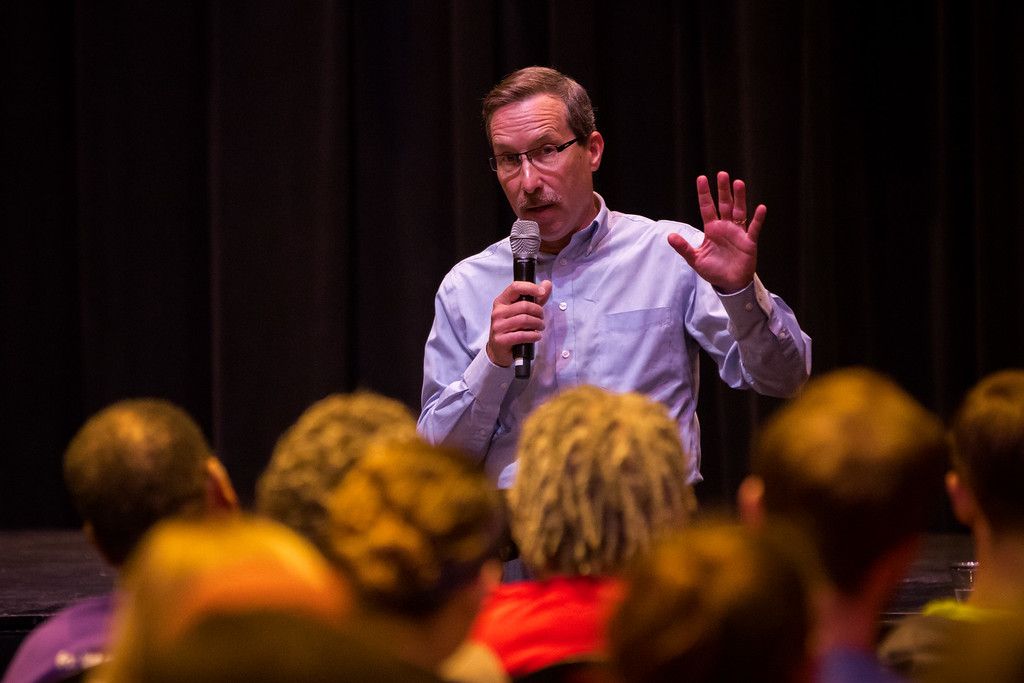by Bruce T. Gourley
Published March/April 2016
(Baptist Studies Bulletin Archives Index)

“It was in the stirring and pioneer days of Montana, and during the flush times of famous Alder Gulch, when Green Clay Smith came to the Territory as its second Executive,” wrote an early Montana historian. “Virginia [City] and Helena were booming mining camps and excitement was at fever heat …. of manufactures there were none, agriculture was infinitesimal, and livestock raising and quartz mining were in their early infancy …. there were dotted here and there, at long distances, the cabin home of the ranchman, and with the exception of four small villages on the sunset side of the ‘Rockies,’ the towns and so-called cities were ephemeral mining camps.”
A Kentucky native, grandson of famed Kentucky politician Green Clay, Baptist layman, lawyer, and former U.S. Congressman, Union general and vocal advocate for Abraham Lincoln’s Emancipation Proclamation during the Civil War, Smith had been appointed Montana territorial governor by President Andrew Johnson, tasked with taming a wild land known for lack of infrastructure and hostilities between white settlers and Native Americans.
Upon the arrival of Smith and his family in Montana Territory in October 1866, the new governor “was most enthusiastically received by the people of the Territory” who hoped “for a betterment of public affairs that seemed to have been going somewhat at haphazard, in fact very recklessly, for a year then last past.”
Smith did not disappoint. From Virginia City in his first official address, the governor, “a very graceful and polished speaker,” noted the absence of “public buildings of any kind” and asked the Legislature to petition the U.S. Congress “for means to erect such buildings as are absolutely necessary.” He also advocated for the completion of a railroad through the Territory, such a step being the best way to “enhance the value of Montana property.” Beyond buildings and rails, Smith called for “a general system of education, by which the humblest and the richest partake” of together. And, of course, taxes: although great riches were being extracted by miners, tax collectors had difficulty collecting payments.
Amid the need to resolve such important matters, skirmishes with Indians continued, with no end in sight.
Successfully pointing the Legislature in the right direction, Montana’s second executive, like other early territorial governors, served too briefly to see the fruition of his efforts. In the summer of 1868 the Smith family returned to Washington, D.C., where Green Clay was ordained as a Baptist minister.
Afterward with his family he moved back to his home state of Kentucky, a war veteran and former politician received as a hero. There he pastored several churches, including the First Baptist Church of Frankfort and the Twenty-Second and Walnut Street Baptist Church (later named Twenty-Third and Broadway Baptist Church) of Louisville, becoming a popular evangelist of such stature that he won over numerous former Confederate soldiers and was spoken of with great fondness, admiration and love by many of his contemporaries. During his Kentucky ministry he served as moderator of the statewide Kentucky Baptist General Association, became an early advocate for securing financial support for retired ministers, supported educational efforts for impoverished children, and initiated the composing of a history of Kentucky Baptists, recruiting historian John Henry Spencer to compose a 1,500 page, two-volume work.
In addition, Smith became a leading national proponent of the Prohibition Movement. Nominated in 1876 for president of the United States by the National Prohibition Party, he received less than 10,000 popular votes. Americans, including Baptists, were not quite ready to outlaw spirits.
In 1890 Green Clay Smith accepted the pastorate of the prominent Metropolitan Baptist Church (now Capitol Hill Baptist Church) in Washington, D.C. Popular among the city’s politicians and Union veterans, in addition to Baptists, he remained pastor of the Metropolitan church until his death in 1895.
Green Clay Smith, a remarkable nineteenth century American politician, reformer and Baptist, is buried in Arlington National Cemetery.
